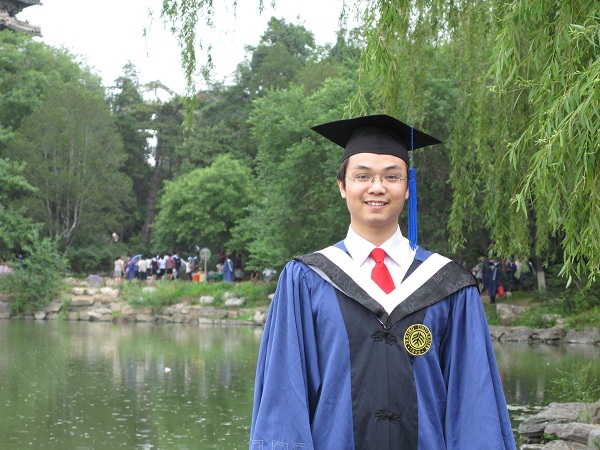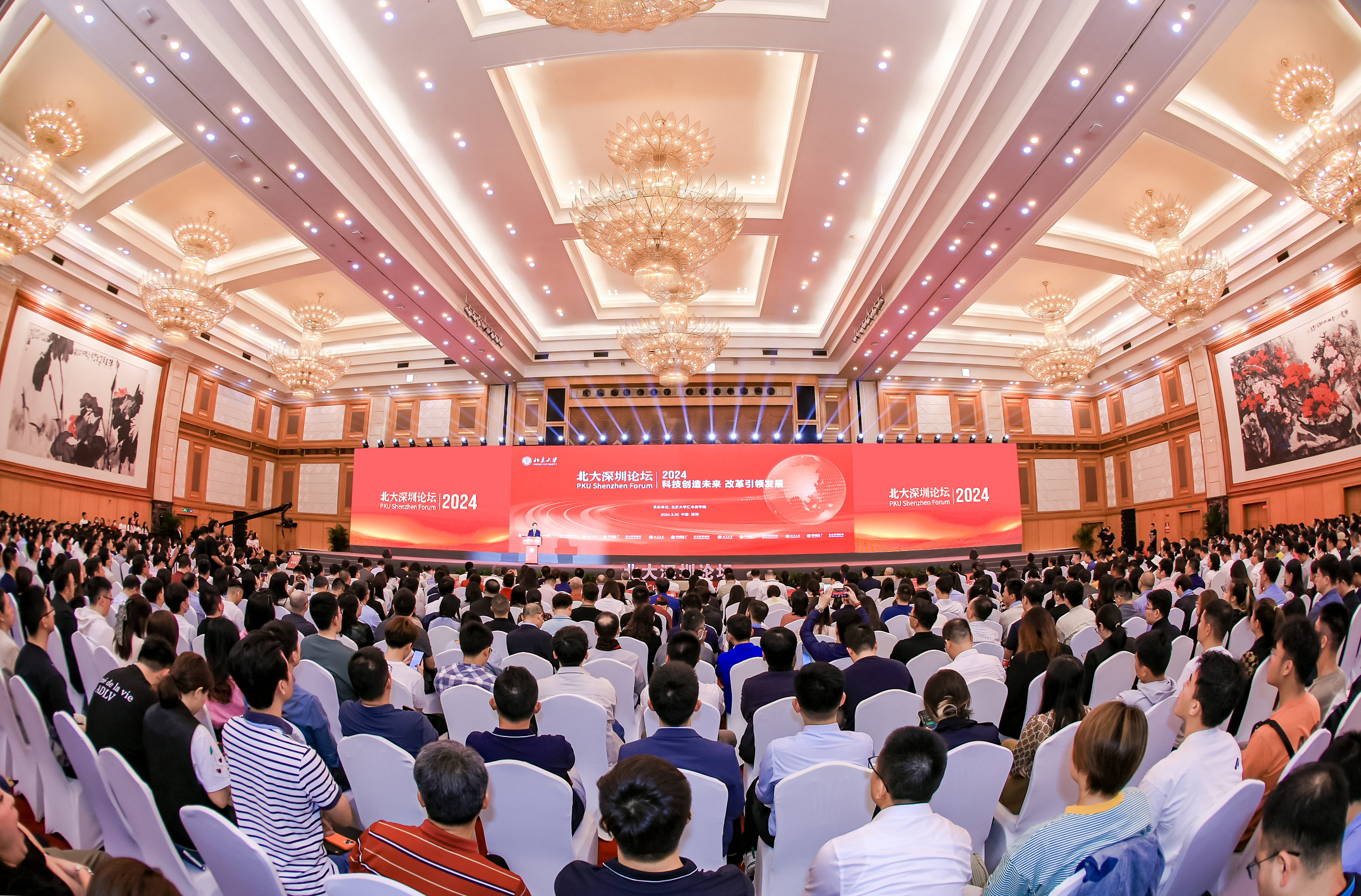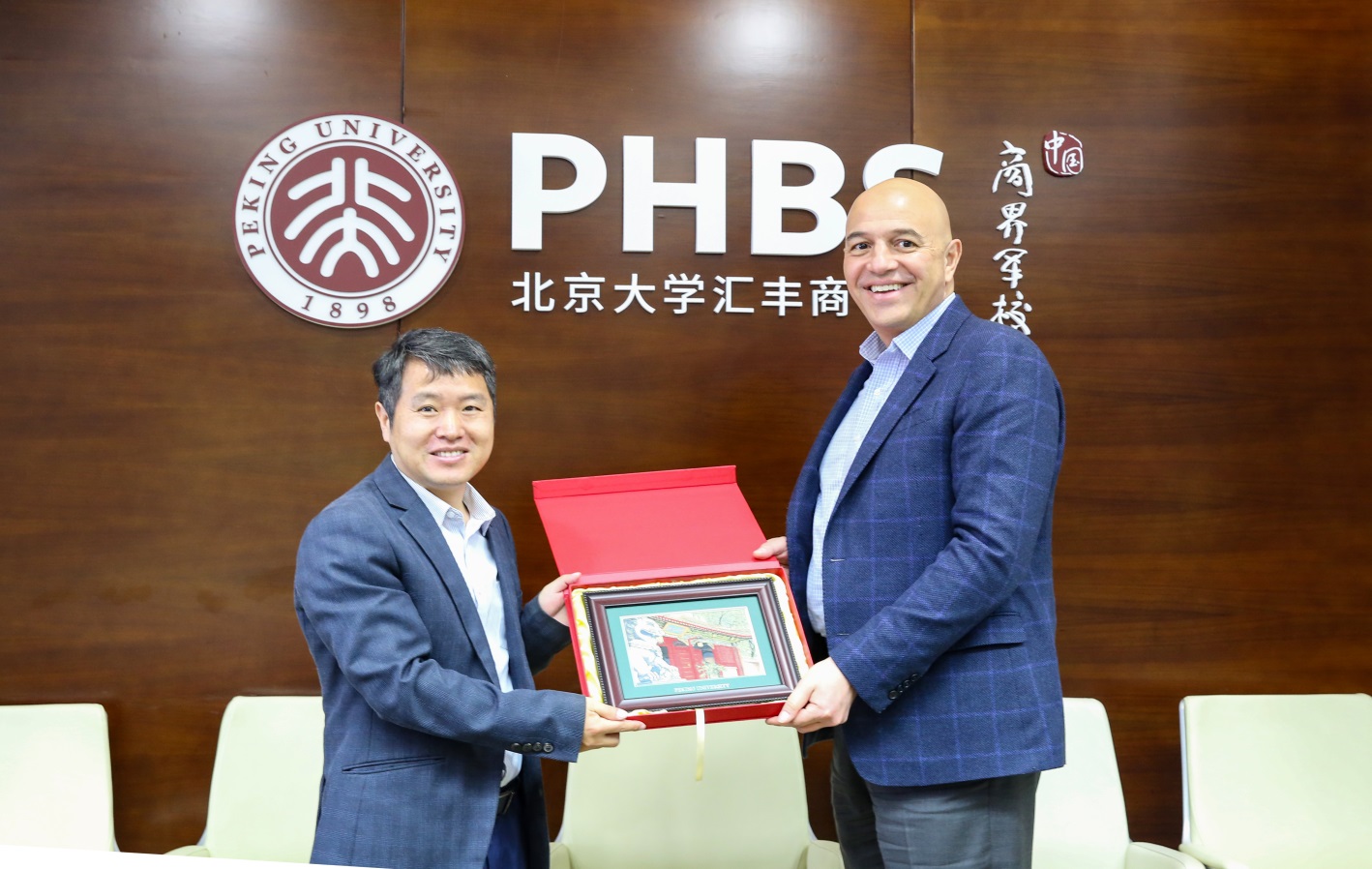Written by Dong Jinpeng Translated by Zhang Tianhong 14'
Wang Dengfeng is the idol of young Chinese professionals in the finance industry because he is in charge of the biggest Monetary Fund ”Balance Treasure” in China, a financial product that allows ordinary people to get a higher return rate by buying it than saving in the bank. The Chinese business magazine ”Business Value” called the 33-year-old man “the most powerful youngster in China.”

One September morning in 2014, after issuing a trading order, Wang Dengfeng spoke with me about his experience in the financial sector.
Five years ago, when he attended job interviews, HR always asked whether his graduate school, Peking University HSBC Business School (PHBS) was a “bogus” school. Just a few months before that PHBS was named after its sponsor HSBC in 2008, and it was unfamiliar to companies in Shanghai and Beijing. Therefore, students like Wang Dengfeng had to face these doubts when looking for jobs.
Further, graduates had to face the challenge of the 2008 financial crisis. Many financial companies reduced their recruitment activities, making the job market more competitive. As Wang recalled, “We decided to take both our resumes and the introduction of our school to the interview. We were not only applying for jobs but also publicizing PHBS.”
With the popularity of Balance Treasure, Wang’s influence has spread beyond the financial sector. Although he has become well-known, Wang said that the only change in his life is that more people know him but it doesn’t affect his daily life. He added, “Since I began my career, I have always reminded myself that no matter how famous you become, you have to stay humble.”
Wang was born in a rural household in Hunan province and earned his bachelor’s degree in economics at Hunan Normal University. Over the next few years, unlike many classmates who focused on jobs, he decided to prepare for the post-graduate entrance examination while working. He was admitted to Peking University Shenzhen Business School in 2006.
His education and work experience made him believe what Professor Hai Wen, the founder of PHBS, said, “When choosing an employer, you should care what opportunities it offers and what you can contribute rather than how famous this company is.”
Wang said “What professor Hai wanted to tell us is the entrepreneurship to run our own business instead of being a free rider.”
Wang brought his entrepreneurial spirit into his work. In 2008, he was hired into the fixed income department of China International Trust and Investment Corporation (CITIC), a new department consisting of only 10 people. He was required to manage a large amount of money, a tiring and difficult job that many people dislike. Wang said, “This job is the most difficult because you have to bear the responsibility of losing money. But I took the spirit of innovation that PHBS taught me to take risks and finally it went through.”
In 2012, Wang decided to try something new, so he moved from trader to fund manager. Based on his impressive performance at CITIC and his reputation in the financial industry, it was expected that he would join a bigger company. However, he chose a small one called Tianhong Asset Management Corporation. His entrepreneurship again helped him to find the chance that other people ignored.
He said, “At that time, many fund managers had to improve their sales to be promoted, so many of them prefer to take risk. However, this company is different in that it insists on a conservative investment strategy. I preferred its strategy because it is more sustainable to invest on the value of company than taking risks on short-term benefits. Besides, the company just restructured, so I have more room to improve myself and build my own business there. The spirit of innovation that PHBS taught me again guided me the right way.”
What happened later justified his choice. The conservative investment policies helped Tianhong Asset Management Corporation survive in a risky market. Therefore, Alibaba cooperated with Tianhong to launch “Balance Treasure,” the most influential Internet financial product in China. Therefore, Wang became the star fund manager managing 500 billion RMB.
Wang said. “To succeed, you don’t necessarily need to go to a well-known company, but you have to possess an entrepreneurial spirit consisting of your belief, passion, and professional knowledge when facing risk.”
And the end of the interview, I asked Wang to give some suggestions for current students. When it comes to what students have to prepare for the job market, he listed four important factors.
First, he thought students should have a solid knowledge background. As for the interview, what interviewers value most is the professional knowledge.
The second was a good characteristic. He said characteristic isn’t something students can prepare before the interview but formed in their daily life. The way they deal with others and the way they do things make their characteristics.
The third was the ability to bear the responsibility. He thought the basic requirement is that students have to finish their jobs on time.
The fourth was teamwork spirit. He said some people think they are so smart that they don’t need to cooperate with others to succeed. However, everyone’s ability is limited compared with teamwork outcome. If they don’t want to sacrifice for their team, they will finally be marginalized in the group.
As for the question about how to choose a career path he applied his own experience to explain.
He agreed that it is not uncommon that many people don’t know what they like because understanding ourselves is very difficult. Therefore, we have to find out our interest during our job and insist on our choice after choosing it. He also mentioned that it doesn’t help to compare your jobs with others. He chose CITIC because he thought this company was better compared with other companies in the same area. However, after joining CITIC, He found his job was not his interest and changed to be a fund manager. He said if he still compared his job with others, he would not become so successful today.















